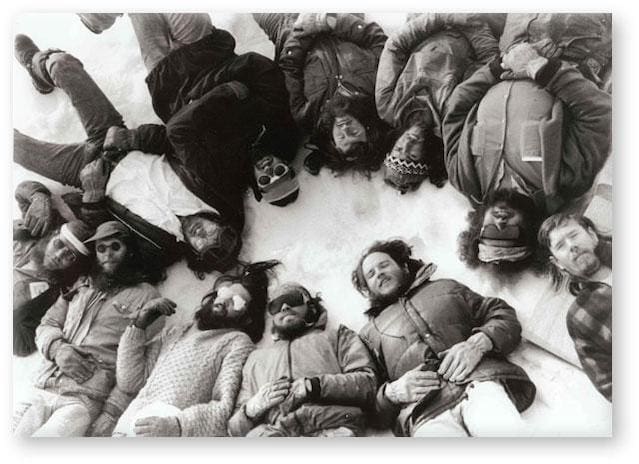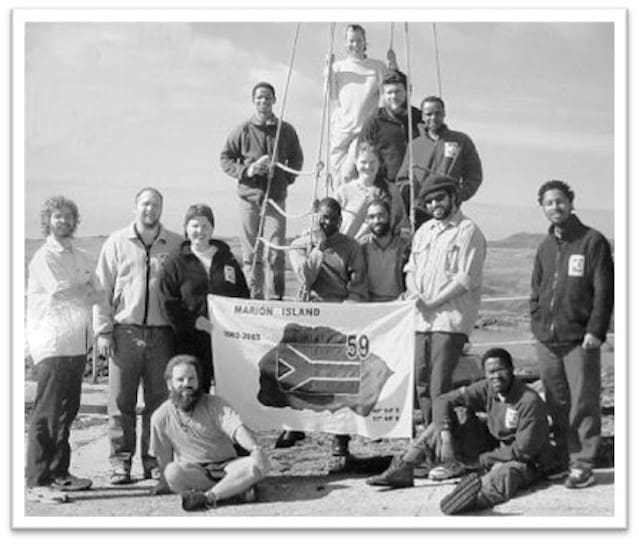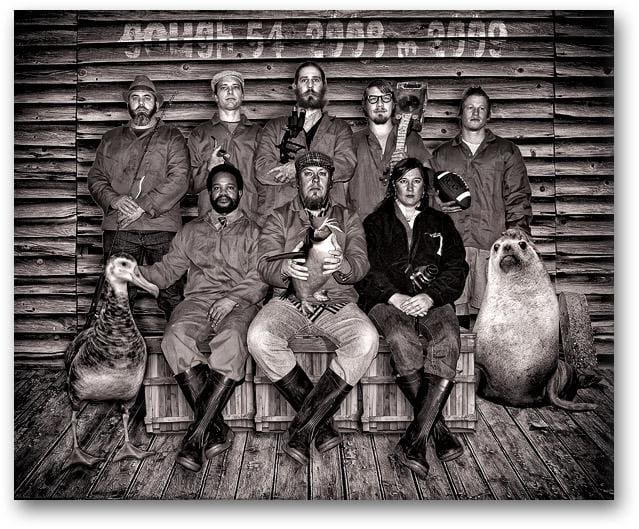Expeditions.
Explore more
Our Mission.
South Africa maintains stations at Antarctica and on Marion and Gough Islands. These stations are managed and administered by the Department of Forestry, Fisheries and the Environment (DFFE).
At the Antarctic station, SANAE IV, the field of research is varied. Apart from meteorological observations, there are programmes, which provide for upper air research (e.g. cosmic rays) and others again, which cover the earth sciences (e.g. geology). At Gough Island meteorological observations are made and Marion Island is a meteorological station with research programmes being undertaken in the fields of oceanography, biology and geology.
Relief voyages to replenish supplies and to exchange personnel take place annually. These voyages are undertaken by the DFFE research and supply vessel, the mv S.A. Agulhas II.
Annual departure times to the various stations are usually as follows:
SANAE IVDecember |
Marion IslandApril |
Gough IslandSeptember |
Who’s who
Our Teams.



Support personnel
Team Structure.
Each expedition is made up of the following personnel:
SANAE Antarctica
1 x Doctor
2 x Diesel Mechanics
1 x Electrical Engineer
1 x Mechanical Engineer
1 x Communications Engineer
1 x Senior Meteorological Technician
2 x Physicists (SANSA Engineers)
Marion Island
1 x Medical Orderly
1 x Diesel Mechanic
1 x Station Engineer
1 x Communications Engineer
1 x Senior Meteorological Technician
2 x Meteorological Technicians
Various field assistants (Birders, Sealers, Botanists)
Gough Island
1 x Medical Orderly
1 x Diesel Mechanic
1 x Electrical Engineer
1 x Communications Engineer
1 x Senior Meteorological Technician
2 x Meteorological Technicians
3 x RSPB Field Assistants
Personnel Appointments and Duration
Appointments for these DFFE support personnel posts are fixed term contracts in the public service with the duration about 15 to 18 months. In scientific posts (field assistants) the periods of appointment vary, and are determined by the training required in a specific instance as well as the time required for the writing up of results upon return from the expedition. Normally, such appointments do not exceed a period of three years. The time spent on one of the Islands or Antarctica itself is usually between 12 to 15 months. Should more than one applicant be found successful for an advertised post, a position at one of the other stations will be offered to candidates who are suitable and interested.
A Team Leader for SANAE, Gough and Marion Islands is selected from the expedition team and performs the duties he/she is qualified for, as well as the required leadership duties. A thorough knowledge of administration and staff control is essential. Knowledge of scientific research is a recommendation. An appropriate B-degree is essential.
See Jobs for current available positions.
Take it or leave it?
Supplies.
Issued Supplies
Team members and other personnel are provided with virtually all of their basic requirements for living and working at Antarctica and the Islands.
Own Supplies
Essentially, this amounts to your personal effects. While all visitors are responsible for the supply and packaging of their personal effects, the onus is also on each individual to inform themselves of the regulations concerning visits to Antarctica and the Islands, and the conditions that can be expected (e.g. climate).
Prohibited Supplies
Certain items and materials are not allowed on the islands and Antarctica, and as such, may not be taken on the expeditions.
Life at sea
The Voyage.
Most personnel that are given permission to visit Antarctica or the Islands either as a staff member of, or by the DEA, are usually responsible for arranging their own transport to the port of departure (Cape Town).
From Cape Town, transport to Antarctica, Marion or Gough Island is by ship – usually the mv S.A. Agulhas II. As the ship has to cross international waters, all personnel must be in possession of valid passport documentation, and for overwintering team members travel documents should not expire in advance of the return date (usually 14 months later).
The S.A. Agulhas II is a well-equipped research and supply vessel, measuring 134.2 m in overall length and 21.7 m in breadth, with a draught of 7.65 m, gross tonnage of 12897 ton and net tonnage of 3840 ton. The ship was built by STX in Finland to the latest passenger specifications and to the highest possible standards and is rated as ice class PC-5.
Sleeping quarters are in the form of cabins with single, double or two double bunks, a small table with chairs, a small desk and cupboard. An en-suite shower and toilet are provided for each cabin. These cabins can become quite crowded if personnel travel with large amounts of personal effects. The ship has recreation facilities (bar* and lounges) with a television and a music system. A very small gymnasium is available (for use by passengers and crew), as is a laundry room with washing machines and tumble dryers**. A small library is also available. All meals are provided on the ship (dress code applies at dinner) and a limited canteen*** service is available. Small kitchens in the passenger lounges are available for making tea and coffee at all times.
A permit to go on board the S.A. Agulhas II is to be requested from AMSOL permits.sag2@amsol.co.za. This email is used for requesting a permit in the future using the form that is required of them to complete in order to gain access. Please click to download the the permit
Good to know
Living at the Station.
All the stations are equipped with the essential facilities to provide for a comfortable stay. These include, bedrooms, bathrooms, kitchen, dining room, TV lounges, entertainment rooms, bar, library, gym, laboratories, offices, workshops, etc.
A chef is appointed for the relief period and will cater for 3 meals a day. If any special meals are required, this should be mentioned during application (vegetarian, Halaal, etc.).
Communication is available at the station. Phone calls are allowed after work hours and each person gets a 10-minute phone call, twice a week (depending on the amount of personnel on the station). These will be billed according to the communications policy on the station. Internet and email are also available free of charge and the communication officer on the station will assist with setting this up. If you require a network point (LAN point), please take your own LAN cables, as the stations do not stock enough to supply everyone. There are also wireless access points throughout each station.
There is no TV broadcast service as all the stations fall outside the broadcasting footprint.
Washing machines and tumble dryers or dry rooms are provided at the stations, with washing powder provided by DFFE.
After work hours, activities can include organised excursions to well-known areas of interest, lounging and watching movies, relaxing and socialising in the bar. Each relief period will also enjoy a take-over function when the new team formally takes responsibility of the station. This might be a formal occasion with a dress code.
Before you go
Advice for
Overwinterers.
If you are an old expedition member and have some valuable tips, please contact us.
Pack the following items to make your adventure a memorable one. (Remember most of these are optional extra for your own comfort.)









